Get Inspired
How Concussions in Motocross Changed My Life
Jeffry Graham walked away from professional Motocross after a countless number of injuries, including many concussions. The brain injuries he suffered led to depression, anger, and anxiety for years, before seeking help to understand CTE and the effects of repetitive head trauma. Since then, he has pledged to donate his brain to CLF for research in the hopes of helping the next generation. Read about Jeffry's journey to recovery and his message of hope below.
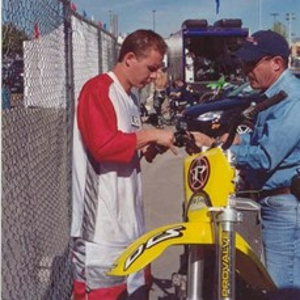
Jeffry’s love for bikes came early, getting his first motorcycle at just 5 years old. Oh, did he love the freedom of putting on a helmet and going fast. He was always drawn to jumping his motorcycle; his family coined the phrase “Jumpin’ Jeffry” at a young age. Jeffry was always a daredevil in some aspect - from climbing trees or rock climbing to jumping his BMX bike.
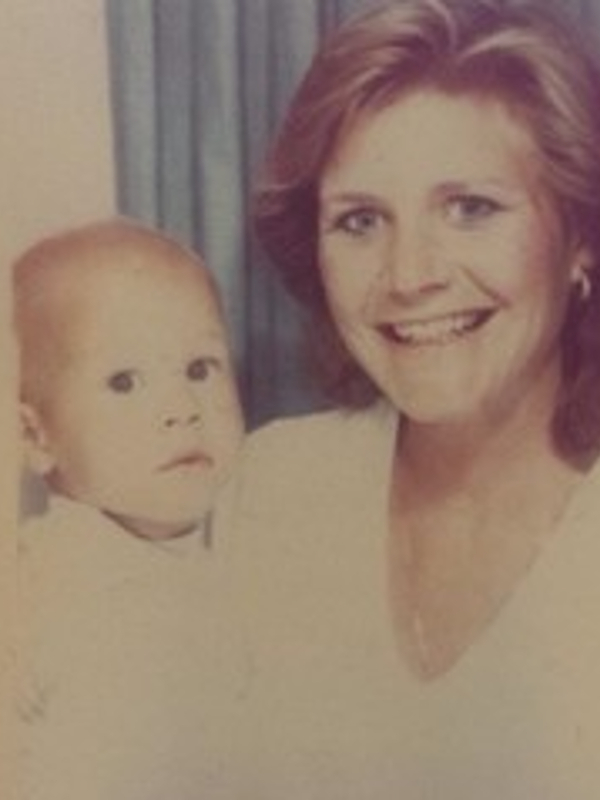
Jeffry’s first substantial crash happened when he was six. He was riding in the desert with his family and had his 50 at full speed, somewhere around 25 mph or more. He tucked his head and twisted the throttle to the max. Jeffry then saw a washout in front of him from a rainstorm. He did not have enough time to hit the brakes, so he decided to try and lift the front of his bike to clear the gap. That didn’t work and he buried his front tire in the ditch, bringing the bike to a dead stop. Jeffry was flung over the handlebars and traveled over 20 feet. The visor on his helmet broke, and he was left completely dazed. His motorcycle’s front forks bent the tire into the engine due to the harsh impact. He later remembers his dad using a sledgehammer to get the forks unbent. This was the first of many concussions throughout his early riding life.
He did not know the effects of falling while riding motocross would start to add up.
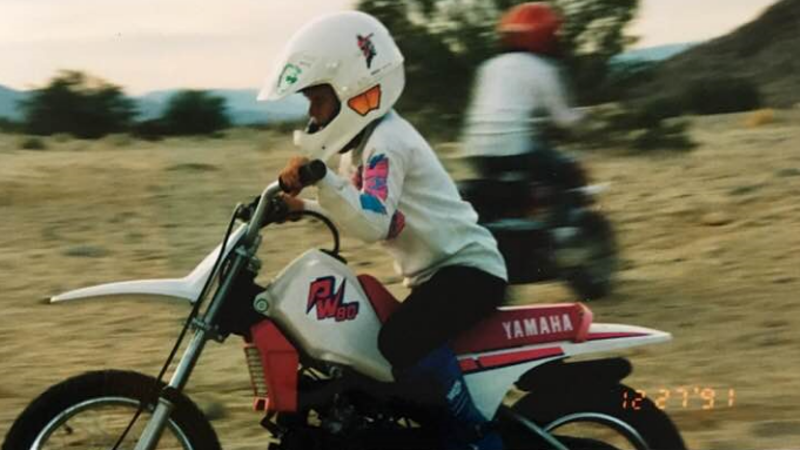
Jeffry grew up in sunny California so there was plenty to do. He started playing football when he was 12 and even won a CIF Championship with Newport Harbor High School in the process. There were many undiagnosed concussions to the head Jeffry can remember from his football days in the mid 90’s. Over and over, collision after collision. He was having a hard time focusing in school and was challenged with forgetfulness. Jeffry’s family at the time associated it with just being lazy or not following through on something.
“Back then there was no concussion protocol,” said Jeffry. “If you could play you were back in the game.”
Toward the end of high school, motorcycle riding really started to take off. Jeffry’s skills were improving, and he started collecting sponsors. He went on to compete in 125cc motocross races. After racing and jumping in the hills of Beaumont, California, he knew he had a skill and subsequently turned pro.

But going big comes with a price, including numerous hard falls and many broken bones. The love for flying on a motorcycle though, kept Jeffry committed to the sport. He then went from racing to Freestyle Motocross, turning pro shortly after the transition. He started jumping ramps and performing more challenging stunts. This resulted in numerous concussions. Things got harder for Jeffry; he was more snappy and not as nice as he once was. He only cared about riding and himself. He was changing and no one knew why.
Jeffry qualified for the X Games three times, competing with the likes of Travis Pastrana and Brian Deegan to name a few. Then a big fall happened in Northern California that would forever change Jeffry’s life. He was hard at work preparing for Games’ qualifiers, learning a new trick to bring to the big show. His riding friends (other pros) helped him pull the ramp back to a much bigger gap. This gap was nearly impossible to clear in second gear, so third gear it was. But jumping a ramp is a lot different than jumping on dirt – while not as much speed is needed, an extra push is important at that distance.

As Jeffry was practicing, he turned the corner and started running up to the ramp. He hit it at the right speed and twisted the throttle. But near the top of the ramp, the bike’s engine stopped. He had slowed down enough that he was not going to make the landing. Jeffry pushed off his bike and jumped for it, flying in the air about 30 feet high traveling roughly 35 mph. He landed on his back. Everything at the time went numb. He then slid down due to the momentum before losing consciousness. Jeffry was out for some time. No one recalls exactly how long. But he woke up to a serious concussion, a broken C7 and C3, a torn groin, and many ligament tears all through his neck and back. It took more than six months of rehab to get back to mostly normal, though he still does not have full mobility in his neck. This was by far the worst of his TBIs.
After that accident, Jeffry decided to hang up his boots. Through all the broken bones and many concussions, it just didn’t make sense for him to continue. He walked away from the sport he loved and began a semi normal life. He battled depression, anger, anxiety, heavy drinking, and the list goes on. For years he had a chip on his shoulder. He lost many motocross friends to suicide or overdose. He then later sought help to better learn about chronic traumatic encephalopathy (CTE) and the effects of repetitive head trauma.
“Understanding CTE was extremely important to me,” said Jeffry.
After learning more about CTE, Jeffry decided to pledge his brain to the Concussion Legacy Foundation for research. He saw the effects of brain injury to his close friends and other extreme sport athletes and knew a few who were diagnosed with CTE after death. Nobody knew that their livelihoods as motocross professionals would turn out this way. If they would have known, Jeffry doesn’t think they would have jumped dirt bikes for a living.
“Most of us who were professional freestyle motocross riders just assumed we were like this,” said Jeffry. “We didn’t know about TBI and CTE. But I have been working on speaking with my fellow riders on social media about this so they can be aware and seek the help they need.”
For Jeffry, there is light at the end of this wild tunnel. He has tried different treatments and found meditation especially helpful. He works hard to learn new things and challenge his brain. He surrounds himself with a strong support system who can keep him positive on the tougher days. And Jeffry is motivated to maintain his brain health for his daughter.
Jeffry eventually became an entrepreneur, starting his first company, a sales consulting firm, when he was 30. He has been a private equity CEO and most recently founded Ecommerce Management and Ecommerce EDU in 2019. He has also written many ecommerce courses for top universities in the country. Living with a TBI is not easy, but Jeffry’s commitment to learn what triggers his symptoms has saved his life.
“You don’t have to quit life because your head is a little banged up,” said Jeffry. “You can have a full and great life. I am so grateful for all of the support my family has given me. Moral and emotional support. I am thankful for the doctors I work with to maintain my health. I hope my story shows you that you too can beat this thing. We are all in this together! We have each other!”
If you or someone you know is struggling with concussion or suspected CTE symptoms, reach out to us through the CLF HelpLine. We support patients and families by providing personalized help to those struggling with the outcomes of brain injury. Submit your request today and a dedicated member of the Concussion Legacy Foundation team will be happy to assist you.
You May Also Like
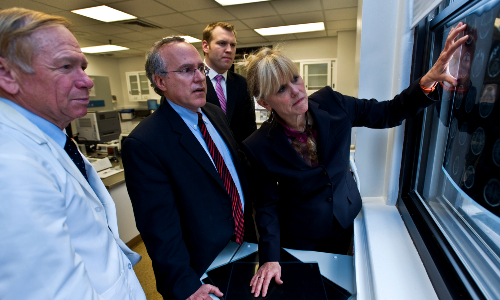
Although we cannot yet accurately diagnose CTE in living people, a specialist can help treat the symptoms presenting the most challenges.
CTE Treatments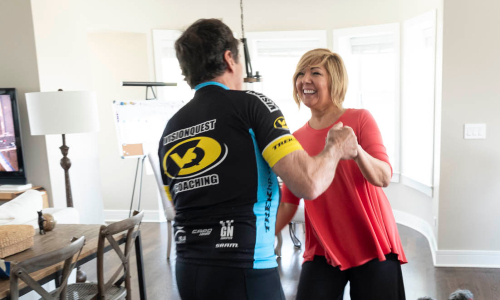
Those struggling with suspected CTE are not the only ones who need support. View tools and resources for CTE caregivers.
Caregiving for CTE